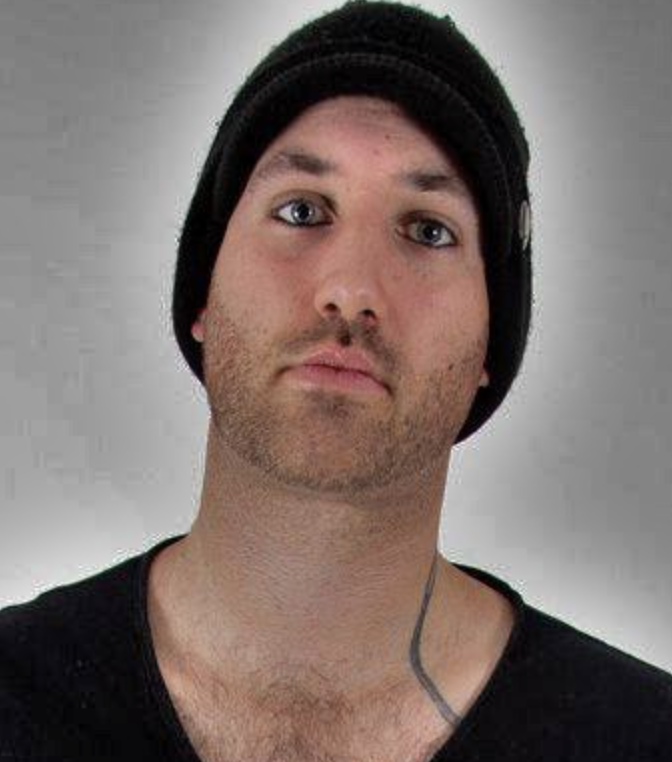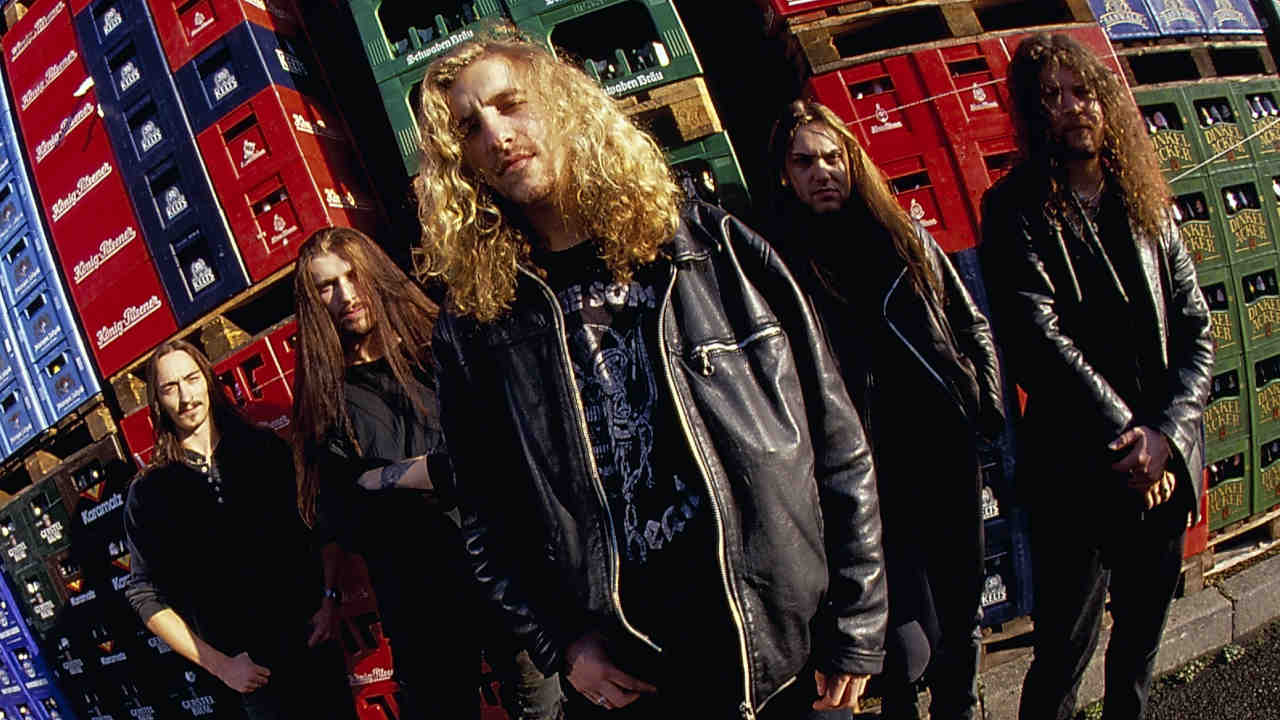“It was Michael Jackson’s label. The people that worked there mostly thought that alternative, heavy music was garbage”: How cult fixtures Prong found their brief mainstream moment
1994’s Snap Your Fingers, Snap Your Neck was a hit, but it wasn’t enough for the hardcore-turned-metal band’s big-label bosses

Select the newsletters you’d like to receive. Then, add your email to sign up.
You are now subscribed
Your newsletter sign-up was successful
Want to add more newsletters?

Every Friday
Louder
Louder’s weekly newsletter is jam-packed with the team’s personal highlights from the last seven days, including features, breaking news, reviews and tons of juicy exclusives from the world of alternative music.

Every Friday
Classic Rock
The Classic Rock newsletter is an essential read for the discerning rock fan. Every week we bring you the news, reviews and the very best features and interviews from our extensive archive. Written by rock fans for rock fans.

Every Friday
Metal Hammer
For the last four decades Metal Hammer has been the world’s greatest metal magazine. Created by metalheads for metalheads, ‘Hammer takes you behind the scenes, closer to the action, and nearer to the bands that you love the most.

Every Friday
Prog
The Prog newsletter brings you the very best of Prog Magazine and our website, every Friday. We'll deliver you the very latest news from the Prog universe, informative features and archive material from Prog’s impressive vault.
Children of New York’s hardcore underground, Prong finally found chart success with 1994 single Snap Your Fingers, Snap Your Neck. However, an apathetic record label prevented them from capitalising on their big break. In 2023, singer/guitarist Tommy Victor told Hammer the story behind the song.

In September 1991, Nirvana released Nevermind and blew the doors wide open for alternative artists to enter the mainstream. Though certainly not alone in representing alternative culture, Nirvana’s success kickstarted a veritable gold rush as major labels tried to find the Next Big Thing. What’s more, the popularity of MTV and Beavis And Butt-Head ensured heavy bands were reaching bigger audiences than ever before. The likes of Sepultura, Machine Head, Helmet and more received a serious rocket boost to their profile, but it didn’t work for everyone.
New York thrash trio Prong had been on Sony subsidiary Epic since 1990, before alternative heavy music started its assault on popular culture. By 1993, they were feeling frustrated. Over the course of their first three albums, Prong had evolved musically – but their fanbase weren’t always happy to follow them.
“We lost the hardcore fans with [1990’s second album/Epic debut] Beg To Differ,” scoffs vocalist/guitarist Tommy Victor. “They thought it was too metal. Then we lost some of the metal fans with [1991 follow-up] Prove You Wrong; they thought it was too weird. More people got lost with [1994’s] Cleansing. I’m not sure why, maybe it was too radio-friendly or something! Apparently, we sold out!”
If fans had baulked at Prove You Wrong, they certainly weren’t ready for its follow-up. Doubling down on the groove elements they had started to tinker with since Beg To Differ, Tommy and his bandmates – drummer Ted Parsons, keyboardist John Bechdel and freshly recruited bassist Paul Raven, formerly of Killing Joke – streamlined their approach with Cleansing. Their career would come to be defined by the first song they wrote for it: Snap Your Fingers, Snap Your Neck.
“We didn’t want to do thrash or crossover,” Tommy explains. “We didn’t know what to do, but we knew we didn’t want to do that. So we thought, ‘Let’s go back to floor-danceable metal’, the kind of thing that people wanted to listen to in clubs. Regular songs rather than Master Of Puppets.”
Testament to this approach, Snap Your Fingers, Snap Your Neck was built on fat hooks, straight-to-the-point beats and a downtuned, chugging riff that would later become a staple of the emergent nu metal scene. But although Snap… has one of Prong’s most iconic riffs, Tommy admits he can’t remember much about writing it.
Sign up below to get the latest from Metal Hammer, plus exclusive special offers, direct to your inbox!
“I’ve no idea!” he laughs, before recalling the first few times the band played the song live. “Even before it came out, Snap Your Fingers... always got a good response. It was different because it focused on a simple drumbeat, but it kicked into a gang chorus. There’s a lot of openness in the verses. You don’t see that in thrash, Metallica don’t do that. So, when that kick drum started coming in, people would open this big pit. Still to this day, that’s when people start going crazy.”
The dream of life on a major label had soured for Prong long before they began writing their Cleansing album. While labels were eagerly snapping up new bands, they often didn’t know what to do with them.
“It was never cool,” says Tommy of his time with Epic. “I’ve said this for 25 years: the band would’ve been way more popular if we’d been on Roadrunner. You have to remember, Epic was Michael Jackson’s label. The people that worked there mostly thought that alternative, heavy music was garbage. While Biohazard, Life Of Agony and Type O Negative thrived worldwide, we were never accepted. Epic just didn’t know why we were on the label and they wanted to get rid of us.”
In spite of this, when Epic heard Snap Your Fingers... in its demo form, their ears pricked up and they felt like they had something they could work with.
“The label were really confident about that song in the beginning,” Tommy says, before adding that Epic still didn’t get exactly what Prong were about. “They had all of these hair metal producers that they were trying to push on us. We had meetings with all these people, but we wanted Terry Date to do it. I don’t know what the record would have sounded like with those guys, but I don’t think it would have sounded as good.”
Thankfully, Prong got their way and Terry Date, fresh from his work on Pantera’s Vulgar Display Of Power and Soundgarden’s Badmotorfinger, was brought in to help give Prong the sound that’s now so iconic for them.
“We came from a noise rock background and we liked chaos,” grins Tommy. “We liked Swans and Sonic Youth, and Terry didn’t try and take that out of us. Usually, a major label producer would try and quash that, but he knew...he was a great metal producer in that respect.”
Looking back, Tommy is delighted that he made the record at a time when he could count on the talents of a true production master to help shape it. “Terry’s goal was really just to satisfy us,” he says. “His expertise was the technical side – he would hear the guitars weren’t right and he’d go, ‘I need to fix that.’ He’d interned in a studio and worked his way up through engineering. It’s not like it is now – ‘I’ve got GarageBand, I’m a producer’ – no! He honed that expertise from the bottom up, working with bands through late nights and cigarette smoke. He was able to dial in and hear when things were wrong. He had that ear that we didn’t have.”
Released on January 25, 1994, Cleansing went on to become Prong’s most commercially successful album, getting them into the Billboard 200 for the first time by shifting more than 300,000 copies in the US alone, and peaking at No.71 on the UK album chart. Much of this success was driven by the choice to make Snap Your Fingers, Snap Your Neck the lead single, which went into regular rotation on MTV.
“It was pretty crazy and pretty cool,” Tommy smiles. “You’d walk into your hotel and put the TV on and there you were. And Beavis And Butt-Head liked it too, so that was always a big thing!”

Unfortunately, one hit and the patronage of MTV’s dumbest duo was never going to be enough to satisfy Prong’s ever demanding major label taskmasters, who wanted another Snap Your Fingers... immediately. Sadly for Prong, it never came. “The problem was that we tried to recapture that formula ad infinitum and we never managed to do it again,” shrugs Tommy. “It was a hard song to duplicate or for us to try and copy. If we did, it never really worked out."
Instead, even though Tommy felt his band had found a style and sound that really suited them, Epic had bigger fish to fry and decided to divert their energy elsewhere.
“Epic had Pearl Jam and that was us done,” he sighs. “We made another record [1996’s Rude Awakening], which bombed. I even played it to one of my friends at the time and they said, ‘This record will bomb!’ and I didn’t even care at that point, I was just so beaten down by it all. I didn’t even want to promote it.”
Soon after the release of Rude Awakening, Prong were released from their contract with Epic and split up. But Snap Your Fingers, Snap Your Neck stubbornly refused to go away, popping up in rock clubs, and on metal comps, mix tapes and playlists as something of a lost classic, until, in 2002, Prong reformed. They’re now rightfully regarded as elder statesmen of the metal scene.
“That song enabled Prong to have some longevity,” Tommy says. “I look at it like this: it contributed to this career that I’ve had for so long. We’ve got something to preserve now, we’ve got our 13th album [State Of Emergency] coming out, that’s pretty cool. That legacy of Prong, to be able to continue that and still be on a record label, probably because of that song, it’s great. It still gets added to Spotify playlists, the numbers are good, and it doesn’t stop.”
As for why the song still connects with people, Tommy believes that, despite Prong not being able to capitalise on it to the fullest, they were in the privileged position of being in the right place at the right time.
“It’s testament to the early 90s,” he says. “Could that happen now? I don’t think so. Back then, Prong, a bunch of guys from the East Side of Manhattan who were clueless, could put a band together with no money, jump in a van with some cheap equipment and get that far – it was really cool. I’m happy that we do have that one song. If we didn’t have that then we’d be in serious trouble! We have other good songs, but that is a serious A-level banger.”
Originally published in Metal Hammer issue 381, December 2023.

Stephen joined the Louder team as a co-host of the Metal Hammer Podcast in late 2011, eventually becoming a regular contributor to the magazine. He has since written hundreds of articles for Metal Hammer, Classic Rock and Louder, specialising in punk, hardcore and 90s metal. He also presents the Trve. Cvlt. Pop! podcast with Gaz Jones and makes regular appearances on the Bangers And Most podcast.
You must confirm your public display name before commenting
Please logout and then login again, you will then be prompted to enter your display name.

